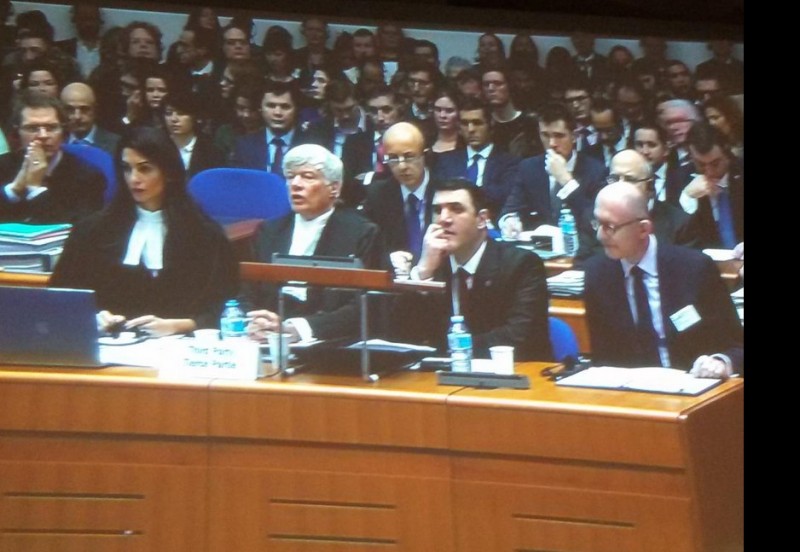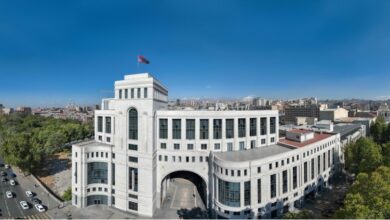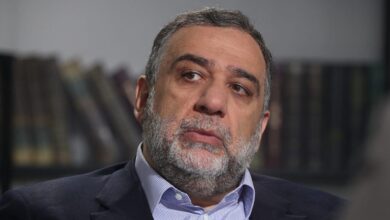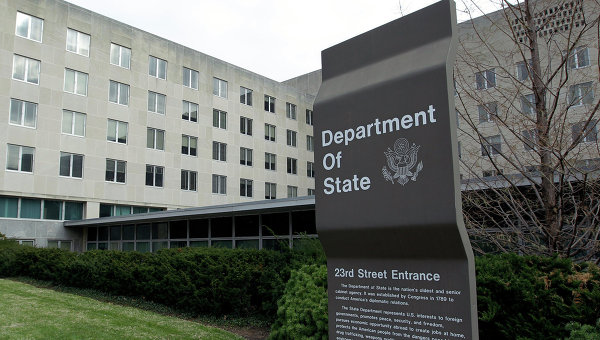
The hearing of the case Perinçek v. Switzerland has started at the European Court of Human Rights.
Armenia is represented at the Court by Amal Clooney, Geoffrey Robertson, Toby Collis and Armenia’s Prosecutor General Gevorg Kostanyan.
A group of Armenians is protesting in front of the European Court, the European Federation for Justice and Development reports.
The applicant, Doğu Perinçek, is a Turkish national who was born in 1942 and lives in Ankara (Turkey). Being a doctor of laws and the Chairman of the Turkish Workers’ Party, he participated in various conferences in Switzerland in May, July and September 2005, during which he publicly denied that the Ottoman Empire had perpetrated the crime of genocide against the Armenian people in 1915 and the following years. He described the idea of an Armenian genocide as an “international lie”.
The association “Switzerland- Armenia” filed a criminal complaint against him on 15 July 2005. On 9 March 2007 the Lausanne Police Court found Mr Perinçek guilty of racial discrimination within the meaning of the Swiss Criminal Code, finding that his motives were of a racist tendency and did not contribute to the historical debate. Mr Perinçek lodged an appeal that was dismissed by the Criminal Cassation Division of the Vaud Cantonal Court.
In that court’s view, the Armenian genocide, like the Jewish genocide, was a proven historical fact, recognised by the Swiss legislature on the date of the adoption of Article 261bis of the Criminal Code. The courts did not therefore need to refer to the work of historians in order to accept its existence. The Cassation Division emphasised that Mr Perinçek had only denied the characterisation as genocide without calling into question the existence of the massacres and deportations of Armenians. The Federal Court dismissed a further appeal by Mr Perinçek in a judgment of 12 December 2007.
Relying on Article 10 (freedom of expression) of the European Convention on Human Rights, Mr Perinçek complains that the Swiss courts breached his freedom of expression. He argues, in particular, that Article 261bis, paragraph 4, of the Swiss Criminal Code is not sufficiently foreseeable 3 Under Article 43 of the European Convention on Human Rights, within three months from the date of a Chamber judgment, any party to the case may, in exceptional cases, request that the case be referred to the 17-member Grand Chamber of the Court. In that event, a panel of five judges considers whether the case raises a serious question affecting the interpretation or application of the Convention or its protocols, or a serious issue of general importance, in which case the Grand Chamber will deliver a final judgment. If no such question or issue arises, the panel will reject the request, at which point the judgment becomes final. Otherwise Chamber judgments become final on the expiry of the three-month period or earlier if the parties declare that they do not intend to make a request to refer.5 in its effect, that his conviction was not justified by the pursuit of a legitimate aim and that the alleged breach of his freedom of expression was not “necessary in a democratic society”.
In its Chamber judgment of 17 December 2013 the Court held, by five votes to two, that there had been a violation of Article 10 of the Convention. It took the view that the grounds given by the Swiss authorities to justify Mr Perinçek’s conviction were not all pertinent and that, taken as a whole, they proved insufficient. The Court observed that the domestic authorities had not shown, in particular, that the applicant’s conviction met a “pressing social need” or that it was necessary in a democratic society for the protection of the honour and feelings of the descendants of the victims of the atrocities which dated back to 1915 and the following years.
The Court therefore found that the domestic authorities had overstepped the margin of appreciation afforded to them in the present case, which had arisen in the context of a debate of undeniable public interest.
On 2 June the case was referred to the Grand Chamber at the request of the Swiss Government.








